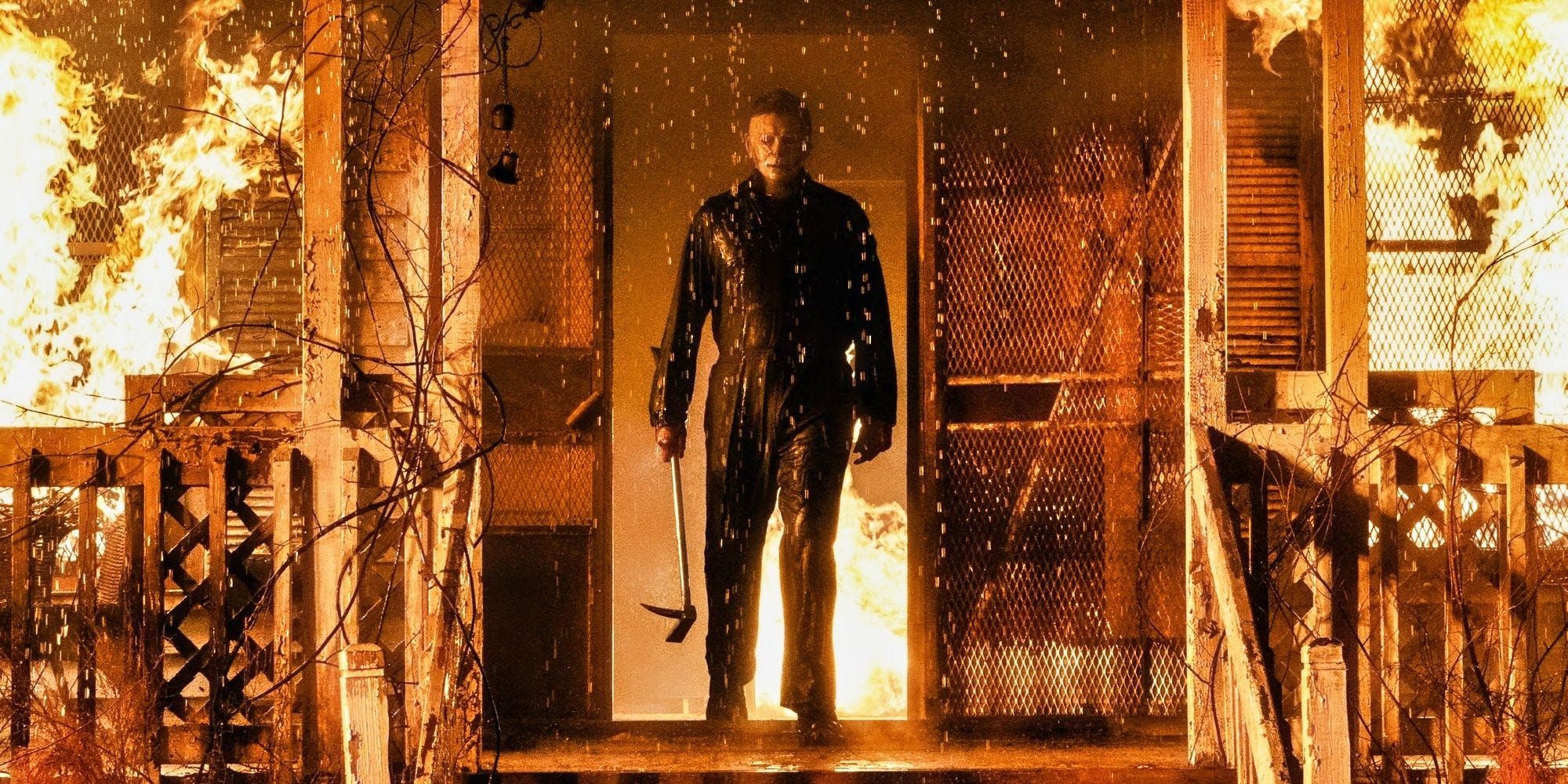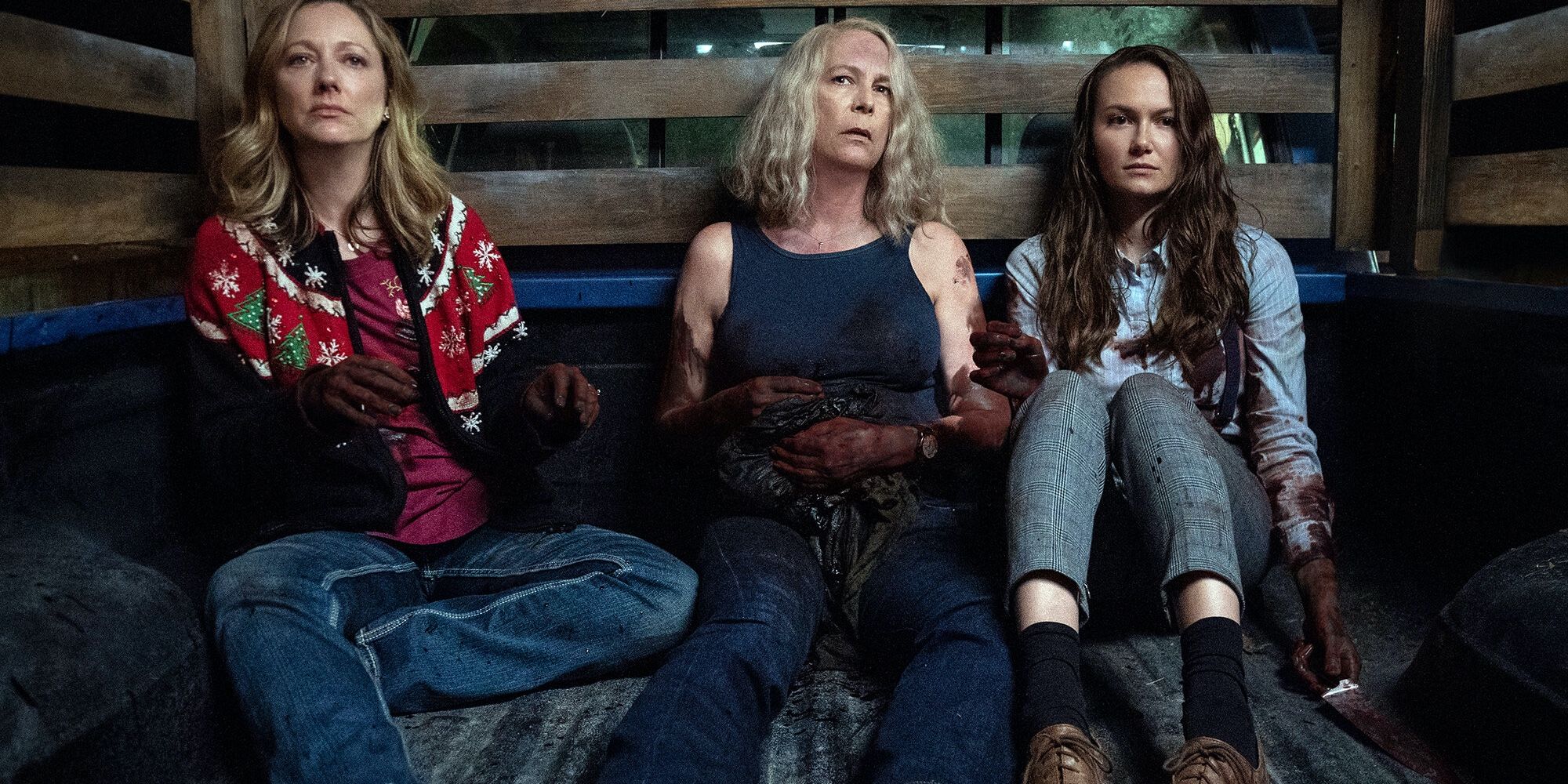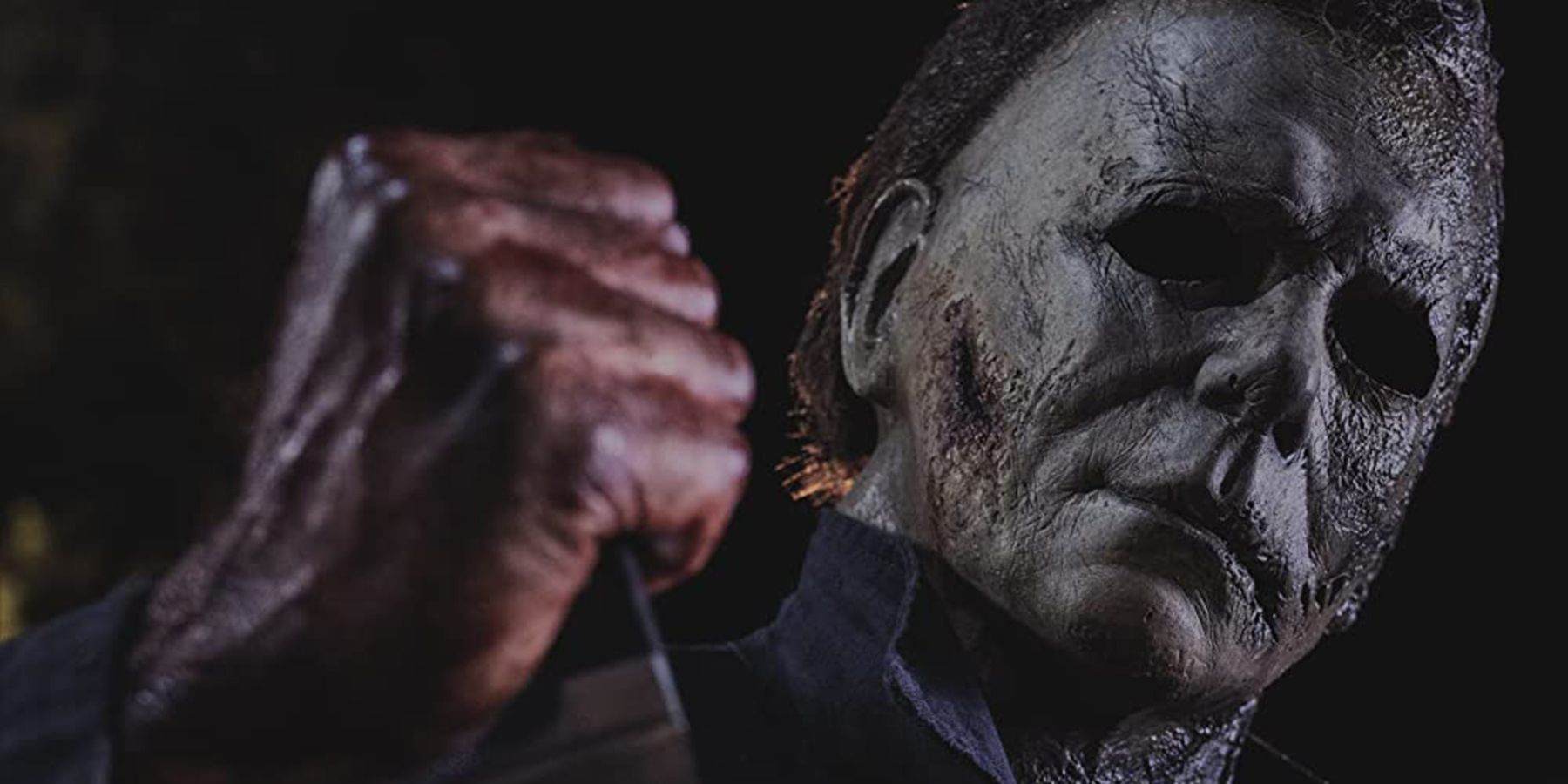With 2018’s Halloween, director David Gordon Green and fellow screenwriters Danny McBride and Jeff Fradley stripped away a lot of the convoluted lore behind Michael Myers. They imagined that only John Carpenters’ Halloween really “happened,” and explored what the lives of characters like Laurie Strode (Jamie Lee Curtis) would look like 40 years later. It was a clever way to rejuvenate a dormant horror franchise with strong female leads and a simple concept while also staying true to the tone of the original. Its follow-up, Halloween Kills, seemingly forgets everything that its predecessor got right.
Where the first film put its focus on Laurie, her daughter Karen (Judy Greer), and her granddaughter Alyson (Andi Matichak), Halloween Kills expands to the entire town of Haddonfield. Or rather, it features a series of insignificant B-players who were also affected by the events of Carpenter’s original. For a moment, it feels as though Halloween Kills is going to examine the psychology of trauma through the lens of an entire town – how a murderous rampage can consume a variety of people – but it fumbles that idea practically out of the gate.
As Michael Myers reveals he was not killed at the end of Halloween (2018), the Haddonfield residents, lead by a grown-up Tommy Doyle (Anthony Michael Hall), become obsessed with enacting their own revenge. Their mantra of "Evil dies tonight" becomes a constant reminder of how the nuance of Halloween has been reduced to a basic revenge tale.
By sidelining Laurie, who was injured in the prior film, Halloween Kills puts a lot of its most unlikeable and, frankly, dumbest characters front and center. Random Haddonfield residents and some returning characters from the ‘70s original appear all grown up, but they aren’t given much to do besides be cannon fodder for Michael Myers. And strangely, Halloween Kills turns Michael into a "slasher John Wick," where he is capable of besting groups of foes through a combination of brute strength and supernatural pain inhibition.
Eventually, Halloween Kills does try to rationalize these confusing narrative choices, but it ultimately falls flat. Horror films are known for characters that make questionable choices, but it felt like this reboot was trying to elevate the common tropes. Instead, the film struggles to make any character likable.
Rooting for the killer in a horror film is one thing, but having to wait so long for each one to get their comeuppance is another. It’s easy to see why some story decisions were made – mostly in service of examining horror through a different lens – but they all fall completely flat. There isn’t even that all-important sense of emotional payoff that makes horror films so cathartic.
Depending on how one looks at it, the good/bad news is that there is a final film titled Halloween Ends planned and presumably that will feature the ultimate showdown between Laurie and Michael. This interstitial episode, though, is just like (and just as disappointing) as most of the Halloween movies that the 2018 reboot tried to erase.



